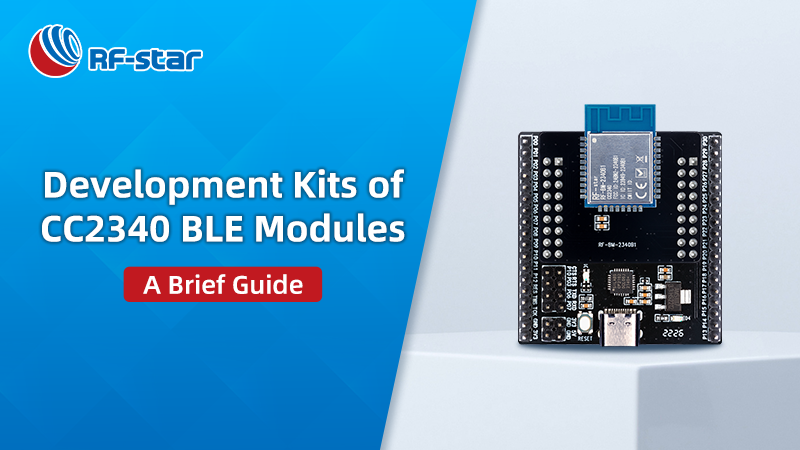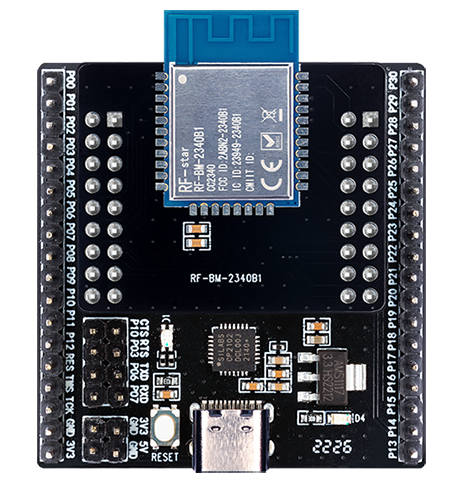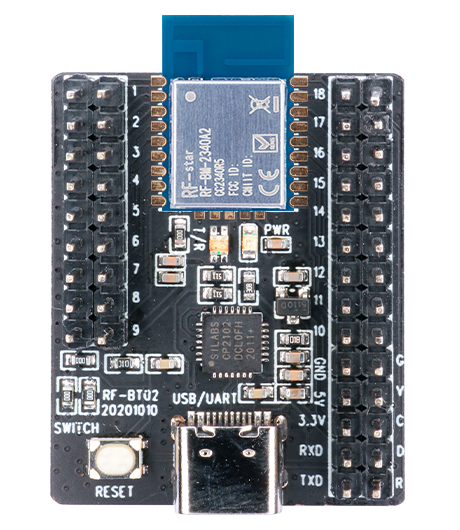How to use the CC2340 module for development or debugging? Here is a brief guide to RF-star development kits (Dev kits) designed for CC2340R5 BLE modules, helping developers to efficiently evaluate their projects and accelerate the design process.

First of all, let’s have a look at RF-star wireless modules based on TI CC2340 SoCs.
RF-BM-2340xx are wireless RF modules integrated with TI CC2340R5 SoC with superior RF performance, rich resources and peripherals, flexible RF output modes, and available dimensions. Embedding the module into your application can reduce the development workload and save time in antenna matching and PCB design. Moreover, the BLE5.0 transparent transmission protocol (UART serial port protocol) of the module allows for quick development initiation. Of course, the module provides access to self-development.
The models are available:
During debugging or development, the challenge often lies in soldering and designing a PCB test board. Soldering pins are too cumbersome to distinguish each other, and wiring errors may pose a risk of damaging the chip. Furthermore, designing a specific PCB can be laborious.
To enable developers to create applications efficiently, RF-star development kits offer the following key features:
-
The kits include a BLE module RF-BM-2340xx, and a development board. Two development boards are ready: RF-BT02 (compatible with RF-BM-2340A2 and RF-BM-2340A2I) and RF-BT03 (compatible with RF-BM-2340B1 and RF-BM-2340B1I).
RF-BM-2340A2 module and RF-BT02 development board

RF-BM-2340B1 module and RF-BT03 development board
-
It supports Type-C wire for a PC and OTG wire for a mobile phone.
-
The default RF-star Bluetooth 5.0 master-slave transparent transmission firmware is integrated, facilitating parameter configuration and communication testing using DuPont wires, wire jumpers, Type-C or OTG wire, and UART assistant.
The dev kits are also convenient for developers who wish to develop their own firmware. All module pins are lead out on the development baseboard, with power supply and burning pins integrated with adjacent positions. Simply connecting the necessary header pins allows for simulation debugging.
For the self-development of CC2340 series modules, the develop environment and hardware should be prepared.
Once getting the dev kits, developers can proceed directly with development or testing combined with our module datasheet or chip manual.
To sum up, the tool eliminates the need to code everything from scratch, providing developers with enough time to focus on core applications and accelerate the design process.
For those using the default firmware, kindly refer to CC2340x Master-Slave Module and Protocol V1.0.


